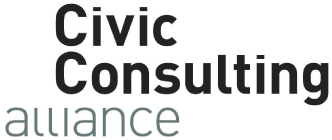
How can the Chicago region strengthen operations to sustainably support influxes of asylum seekers?

Four years, $34 million invested in Chicago: recapping our partnership with the Lightfoot administration
May 16, 2023
Fellow Spotlight: Tarun Kapoor
August 22, 2023How can the Chicago region strengthen operations to sustainably support influxes of asylum seekers?

Civic Consulting Alliance recently completed several collaborative projects with local and state governments to meet the urgent needs of asylum seekers, and prepare long-term, sustainable strategies for future influxes of new arrivals to Chicago. Clients featured below include Chicago Public Schools (CPS), Chicago Department of Family and Support Services (DFSS), Illinois Department of Human Services (IDHS), and the Johnson transition team.
Global instability caused many individuals and families to seek refuge in the U.S.
Illinois has recently welcomed asylum seekers from Central America, as well as Africa, Europe, and the Middle East. Many new arrivals have made their way to Chicago by way of nonprofits and governments along the border that purchase tickets for individuals to Chicago without any coordination for agencies to receive them. This includes more than 5,000 individuals bussed from Texas since August 2022.
Illinois does not typically receive waves of asylum seekers, and lacks the operations to effectively meet the needs of this population. The recent influx has been an “all hands on deck” moment for state and local government, community-based organizations, and other partners to quickly come together to provide holistic care and shelter needs with dignity.
Civic Consulting Alliance was well-positioned to respond to calls from the City and State to help address the ongoing humanitarian crisis. As a neutral, external party, we can improve collaboration, facilitate shared learning, and support strategic decision-making in order to help institutions support asylum seekers. Below are summaries of how Civic Consulting Alliance supported government’s response to meet immediate needs and long-term planning for asylum seekers.
Immediate response: prioritizing families ready for permanent housing for IDHS and DFSS
In most instances, Illinois Department of Human Services (IDHS) and Chicago Department of Family and Support Services (DFSS) are prepared to provide temporary shelter to families and individuals. However, the unprecedented surge of under-resourced asylum seekers exacerbated these already-strained support systems. Both departments called on Civic Consulting Alliance to consult on strategies to quickly help those in temporary shelter make informed decisions about their paths to independent housing – in Illinois or elsewhere in the U.S.
- To expedite resettlement, Civic Consulting Alliance helped develop a “housing readiness” survey for asylum seekers in eight City shelters and 11 State hotel sites. The survey covered topics like location preferences, household size, and current barriers to housing. Once IDHS prioritized which families were ready to move from hotels into independent housing, Civic Consulting Alliance leveraged that approach, materials, and data to help DFSS outline its resettlement strategy.
- The recent lifting of Title 42 increased the urgency for new Mayor Brandon Johnson to ensure that his administration could continue to manage the influx of asylum seekers. As a part of the mayoral transition, the Johnson transition team leveraged Civic Consulting Alliance’s knowledge to better understand and build responsive strategies to address this ongoing crisis.
Long-term: Building support infrastructure for asylum seekers
As families continue to seek refuge in Chicago, social service agencies need sustainable models to support influxes of new arrivals. Our projects with IDHS and CPS advance their goals to develop a more coordinated approach that expedited intake and increased access to services like healthcare and education:
- We supported IDHS to develop long-term strategies for welcoming asylum seekers to Illinois, and integrate the asylum seeker response into the broader ecosystem of services available to unsheltered Illinoisians. This included recommending improvements to build a service delivery model where anyone could access the same support services through multiple points of entry, including bus arrival, shelters, Welcoming Centers, or by calling 2-1-1 or 3-1-1.
- Chicago Public Schools also faced similar challenges, and needed to more efficiently enroll the unprecedented influx of newcomers. As a long-time CPS partner, we helped build a newcomer support strategy to improve service delivery for newcomer students and their families. We provided CPS with the recommendations, staff guidelines, and implementation plan to launch a pilot that will centralize services like enrollment, language screening, and various support resources to efficiently accommodate the needs of newcomer families. The pilot is set to launch at the end of June.
Helping the Chicago region develop new models to effectively support a growing number of asylum seekers
“Civic Consulting Alliance’s partnership gave us strategies that we can utilize in the future to meet the needs of families with school-aged children coming to Chicago.”
— Pedro Martinez, CEO, Chicago Public Schools
The influx of unhoused asylum seekers requires the City and State to assess and respond quickly, which is a challenge for any government agency faced with a crisis. The Civic Consulting Alliance team was able to quickly ramp up to provide leaders with a framework to make informed decisions about their next steps to support asylum seekers in accessing independent housing and support services.
The trust and ability to serve clients with similar needs illustrates Civic Consulting Alliance’s unique ability to work across government agencies to develop strategies to support a shared goal. Long term, the combined efforts to streamline processes and foster cross-department collaborations better equipped the City and State to apply collaborative, all-in-one service delivery models into strategies that can support future influxes of individuals and families experiencing housing instability.
